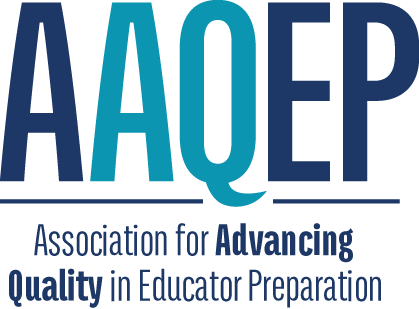Goals of the College
The goal of the Educator Preparation Program is to prepare candidates who have the following competencies:
- Learner Development. The candidate understands how learners grow and develop, recognizing that patterns of learning and development vary individually within and across the cognitive, linguistic, social, emotional, and physical areas, and designs and implements developmentally appropriate and challenging learning experiences.
- Learning Differences. The candidate uses understanding of individual differences and diverse cultures and communities to ensure inclusive learning environments that enable each learner to meet high standards.
- Learning Environments. The candidate works with others to create environments that support individual and collaborative learning, and that encourage positive social interaction, active engagement in learning, and self-motivation.
- Content Knowledge. The candidate understands the central concepts, tools of inquiry, and structures of the discipline(s) he or she teaches and creates learning experiences that make these aspects of the discipline accessible and meaningful for learners to assure mastery of the content.
- Application of Content. The candidate understands how to connect concepts and use differing perspectives to engage learners in critical thinking, creativity, and collaborative problem solving related to authentic local and global issues.
- Assessment. The candidate understands and uses multiple methods of assessment to engage learners in their own growth, to monitor learner progress, and to guide the candidate's and learner's decision making.
- Planning for Instruction. The candidate plans instruction that supports every student in meeting rigorous learning goals by drawing upon knowledge of content areas, curriculum, cross-disciplinary skills, and pedagogy, as well as knowledge of learners and the community context.
- Instructional Strategies. The candidate understands and uses a variety of instructional strategies to encourage learners to develop deep understanding of content areas and their connections, and to build skills to apply knowledge in meaningful ways.
- Professional Learning and Ethical Practice. The candidate engages in ongoing professional learning and uses evidence to continually evaluate his/her practice, particularly the effects of his/her choices and actions on others (learners, families, other professionals, and the community), and adapts practice to meet the needs of each learner.
- Leadership and Collaboration. The candidate seeks appropriate leadership roles and opportunities to take responsibility for student learning, to collaborate with learners, families, colleagues, other school professionals, and community members to ensure learner growth, and to advance the profession.
- Legal and Ethical Aspects. The candidate understands the legal aspects of teaching including the rights of students and parents/families, as well as the legal rights and responsibilites of the educator. The educator will commit to uphold the Texas Educator Code of Ethics.
- Educator Excellence. The candidate understands characteristics of educator excellence as defined by Texas approved appraisal systems.
- College/Career Readiness through the Use of State of Texas Assessments of Academic Readiness (STAAR) and End of Course Exams (EOC). The candidate understands and is able to implement the state standards for what students should know and be able to do and implements the Texas curriculum standards to advance the mission of Texas: college and career ready students. (STAAR, EOC)
- Texas Examination for Educator Standards (TExES). The candidate understands and demonstrates competencies related to their field of study by successful performance on state certification exams.
- Service-Learning.The candidate understands the relevance of DBU service-learning in enhancing student learning, fostering civic responsibility, and developing servant leaders.


